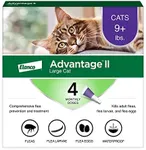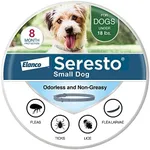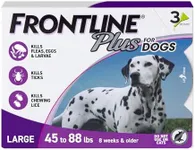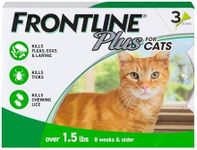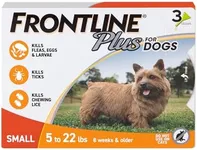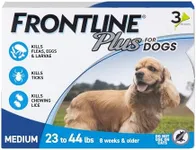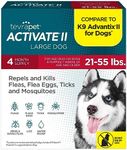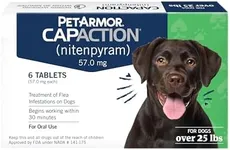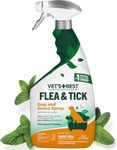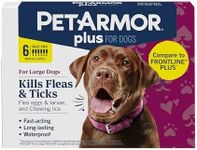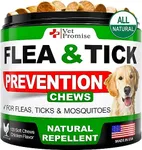Buying Guide for the Best Flea Killers
Choosing the right flea killer is essential to ensure the health and comfort of your pets and household. Fleas can cause significant discomfort and health issues for pets, and they can also infest your home. When selecting a flea killer, it's important to consider various factors to ensure you choose the most effective and safe option for your specific needs. Here are some key specifications to consider when picking a flea killer.Type of Flea KillerFlea killers come in various forms, including topical treatments, oral medications, flea collars, sprays, and shampoos. Each type has its own advantages and is suitable for different situations. Topical treatments are applied directly to the pet's skin and are effective for long-term prevention. Oral medications are ingested by the pet and can provide quick relief. Flea collars offer continuous protection, while sprays and shampoos can be used for immediate treatment. Consider your pet's lifestyle, preferences, and any existing health conditions when choosing the type of flea killer.
Active IngredientsThe active ingredients in flea killers determine their effectiveness and safety. Common active ingredients include fipronil, imidacloprid, and permethrin. Fipronil and imidacloprid are often used in topical treatments and are effective against both fleas and ticks. Permethrin is commonly found in sprays and shampoos but should not be used on cats. It's important to choose a product with active ingredients that are safe for your specific pet and effective against the type of fleas you are dealing with.
Duration of EffectivenessThe duration of effectiveness refers to how long the flea killer remains active and provides protection. Some products offer protection for a month, while others can last up to several months. Longer-lasting products are convenient as they require less frequent application, but it's important to follow the manufacturer's instructions to ensure continuous protection. Consider your schedule and how often you are able to reapply the treatment when choosing a product with the appropriate duration of effectiveness.
Safety for Pets and HumansSafety is a crucial factor when selecting a flea killer. Some products may contain chemicals that can be harmful to pets, especially young, elderly, or pregnant animals. Additionally, certain ingredients can be toxic to humans, particularly children. Always read the label and follow the instructions carefully. Look for products that are specifically formulated for your type of pet (e.g., cat or dog) and avoid using dog flea treatments on cats, as they can be harmful. If you have any concerns, consult your veterinarian for recommendations.
Ease of ApplicationThe ease of application can vary significantly between different flea killers. Topical treatments and flea collars are generally easy to apply and require minimal effort. Oral medications may require some coaxing to get your pet to ingest them. Sprays and shampoos can be more labor-intensive as they require thorough application and rinsing. Consider your pet's temperament and your own comfort level with applying the treatment when choosing a product that is easy for you to use.
Environmental ImpactSome flea killers can have an impact on the environment, particularly those that contain harsh chemicals. If you are concerned about the environmental impact, look for products that are labeled as eco-friendly or biodegradable. These products are designed to be less harmful to the environment while still being effective against fleas. Consider your environmental values and the potential impact of the product when making your selection.
